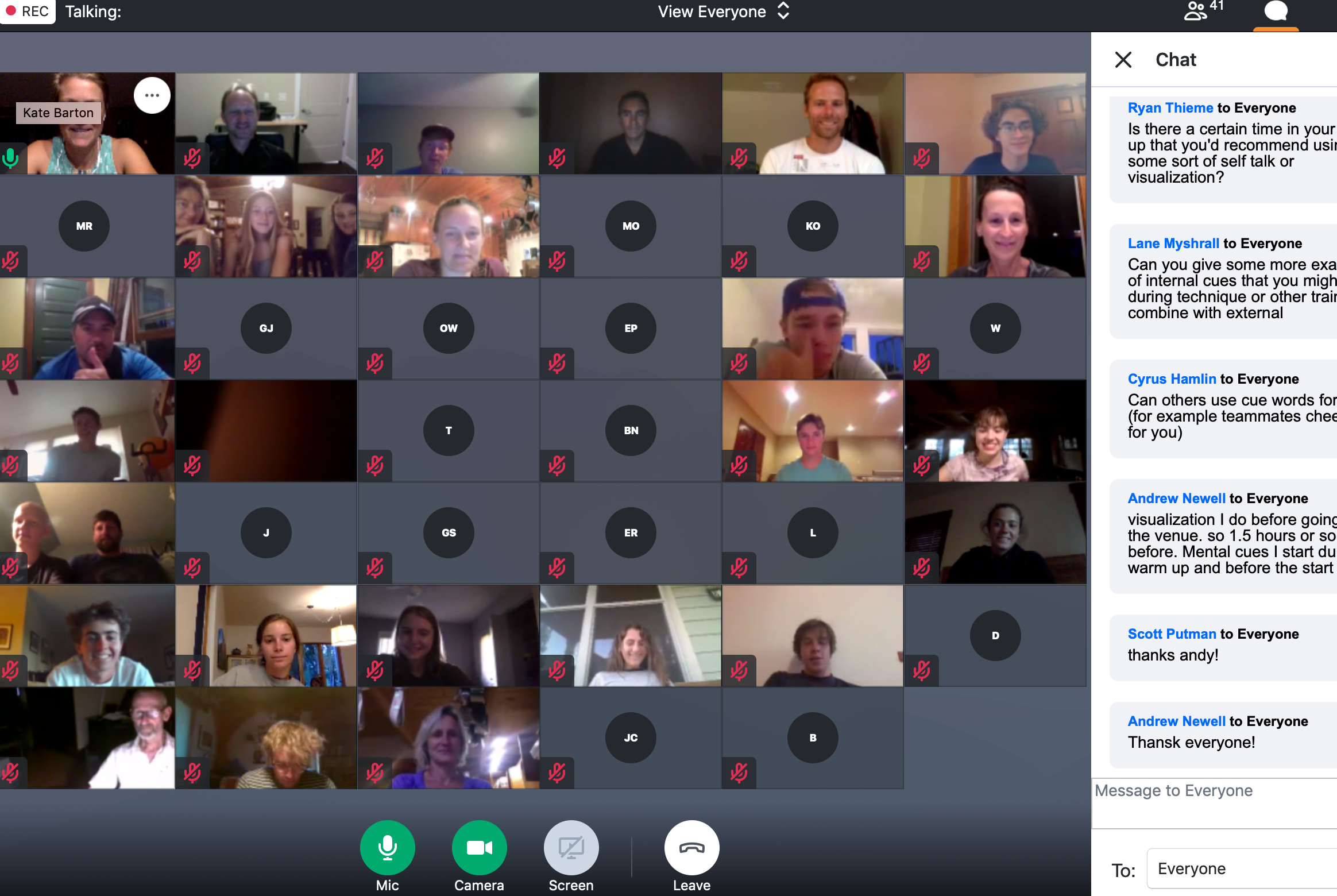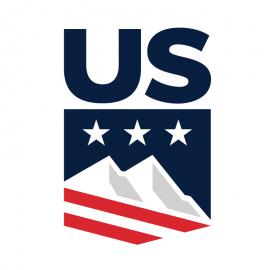Going Virtual Expands Involvement for Cross Country REG Camps

How do you find future Olympians and develop a cross country and national team culture during a pandemic? Virtually, of course!
We’re not talking video games here, but video chats and real-life data pulled from athletes participating in four, six-day Regional Elite Group (REG) camps across the country in cooperation with the National Nordic Foundation (NNF) and regional clubs. “We’re able to provide the same experience with standards and expectations as a normal (in-person camp) given the uniqueness of the situation,” said Davis U.S. Cross Country Team Development Coach Kate Barton.
Each day of the REG camps features detailed training plans that include both morning and afternoon workouts, followed by nightly GoToMeeting presentations focused on topics such as “How to be a Resilient Athlete” and “How to Deal with Training in the Current Times.” By presenting detailed training plans and videos that the athletes could watch the morning of each session, the staff was able to provide virtual cues and visual ideas with the setup of each workout, how the workout is to be performed, and the workout goals. “An athlete training completely alone would have the same amount of information as an athlete who has full club and coach support,” Kate said.
The camps also utilize some “old school” training tactics that haven’t been used in a number of years, including a 1,000-meter SkiErg test, 3,000-meter track run, and the Canadian Strength Test. The individual results provide Kate and U.S. Ski & Snowboard Cross Country Sport Development Manager Bryan Fish the opportunity to create a database of national information to compare athletes from all across the country.
“We implemented this across the regions, kids across the nation can see how they stack up against one another,” Bryan said. “There is a great deal of data out there that can be of value for comparison purposes. For example, one can look up World Cup athletes from Bjørn Dæhlie to Theresa Johaug, to many Swedish Cross Country skiers that have run a 3,000-meter on the track.
Indeed, general testing and time trials need to be framed and evaluated with the appropriate perspective as no single general test outlines ski success. However certain general tests and time trials can outline specific individual strengths and opportunities for improvement.
“One of our goals is to develop well-rounded athletes that are fit, strong, agile, mentally resilient, and emotionally prepared.”
– U.S. Ski & Snowboard Cross Country Sport Development Manager Bryan Fish
“The foundation of a successful skier is a strong and well balanced general athletic background.” These general tests can provide guidance to the athletes as to where their personal strengths currently exist and where there is further opportunity for growth. Secondly, it is important for the athletes to practice competition. One needs to practice the mental, emotional, and physical challenges that only a race, time trial, or test can create. By doing this in the summer in a camp setting, this allows for rehearsal for the winter.”
Although everyone would prefer in-person camps, the virtual camps do provide broader community participation, especially for coaches. “[Coaches] are the ‘boots on the ground’ and the ones that have really made this project work,” Kate said. “Bryan and I did a lot of leg work and preparation for this camp in the lead up, but the regional coaches have really stepped up to support that plan and to help the kids carry it out on an individual basis in a productive way.”
A few years ago the Cross Country Team created the Retired Stars Mentorship Program as a way for alumni, and current Davis U.S. Cross Country Team members, to give back to the sport and inspire the next generation of athletes. Past regional and national development camps have included Retired Stars participants such as Liz Stephens and Ida Sargent. This year’s camps have featured Andy Newell, and current team members Halley Swirbul and Hannah Halvorsen.
“They share their motivation, passion and experience with the kids whether in person or virtual. It certainly enhances the environment of learning and definitely captivates the athletes’ attention to have these current and former U.S. Ski Team members share their personal knowledge and insight,” Bryan said.
These current and former athletes also help drive home the message of cross country culture here in the United States. “Developing a strong national cross country skiing culture is a primary goal,” Bryan said, “and we have three steps in that process: developing a passion for outdoor endurance sport; a culture of training; and a culture or performance.”
Bottom line is whether training in a camp setting, with their club, or by themselves and then gathering nightly, the athletes participating in the REG camps are not only pushing themselves, but raising the level of training preparation and competition across the country for U.S. athletes to compete on the world stage. “I miss seeing the kids, and I love working with them in person...I love the energy!” Kate said. “But I think we’re doing the best we can (based on the current situation) and I certainly left the first camp more energized than when it started, and I hope it had the same impact on the athletes.”
